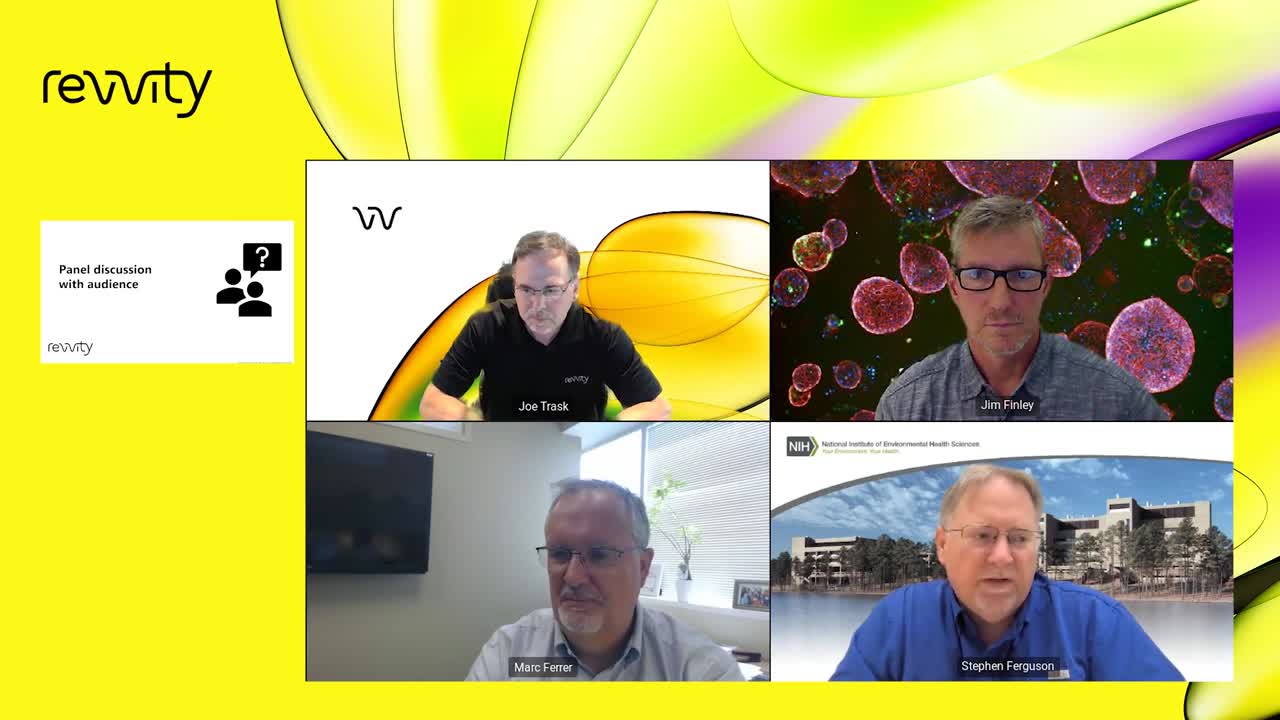


Revolutionizing drug safety: tools reshaping toxicology
Don’t miss this on-demand panel discussion to hear insights from top experts, James Finley (Pfizer), Stephen Ferguson (NIEHS), and Marc Ferrer (NCATS), on key technologies that are reshaping toxicology testing.
With the recent announcement of the FDA Modernization Act 2.0, which permits alternatives to animal testing in drug development, the landscape of drug and chemical safety is rapidly shifting. Researchers are increasingly adopting more effective cell-based technologies in efforts to replicate in vivo responses—such as 3D organoids and organ-on-chip models. These advanced complex microphysiological systems create an environment for the longevity of cells, allowing longitudinal studies involving drug, chemical, or genetic perturbations.
Additionally, the use of bioprobes, including cell painting, aids in generation of morphological profiling and protein expression to capture cellular responses with intricate detail from high-content microscopy images. Together, these approaches contribute to mechanistic insights and prediction of drug efficacy and toxicity.
Key panel discussion areas include:
- Advancements in predictive toxicology testing
- Cell models, technologies and assays applied
- Adoption and challenges of technology
For research use only. Not for use in diagnostic procedures.
To view the full content please answer a few questions





























